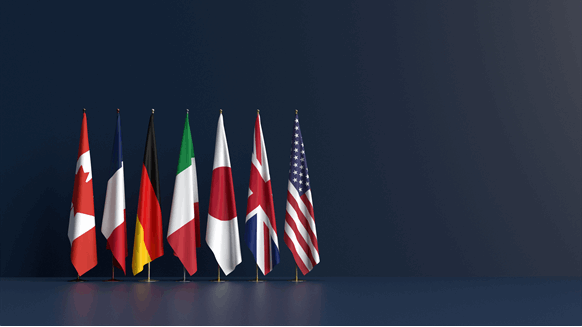
Group of Seven nations are closing in on an agreement to significantly increase sanctions on Russia over its continued war in Ukraine, according to a statement released after a finance ministers’ meeting on Wednesday.
“We are aligned on the need to act together and believe that now is the time for a significant coordinated escalation of measures to bolster Ukraine’s resilience and critically impair Russia’s ability to wage war against Ukraine,” the statement said.
G-7 nations – the US, as well as the UK, France, Germany, Italy, Japan and Canada – are working on a range of options, which include new measures on key economic sectors such as energy, finance and the military industry.
They also agreed to give “serious consideration” to trade and other restrictions for nations and entities boosting the Kremlin’s war effort and helping Russia work around curbs, including “on refined products sourced from Russian oil.” Countries including India have already come under severe pressure from Washington to curb their purchases of Russian crude.
“We agreed that now is the time to maximize pressure on Russia’s oil exports, a major source of their revenue,” the statement said. It suggests that the G-7 could move to sanction Russian oil majors, and target its shadow fleet of oil tankers and the wider energy trade.
Ministers also discussed Ukraine’s financial needs, including coordinating ways to make further use of frozen Russian central bank assets. They will reconvene in Washington later this month.
Separately, European Union leaders met in Denmark as momentum gathers over a plan to use funds immobilized in the bloc to provide Ukraine with EUR 140 billion ($164 billion) in fresh aid. The EU is also working on a new sanctions package, that would see it ban Russian liquefied natural gas by 2027 and impose more restrictions on Moscow’s energy and financial sectors.
Both the EU and the G-7 are hoping to conclude their respective sanctions packages this month, according to people familiar with the matter, who spoke on condition of anonymity to discuss private deliberations.
Source: Alberto Nardelli & Michael Nienaber
